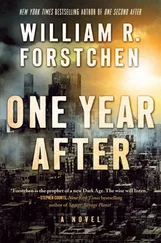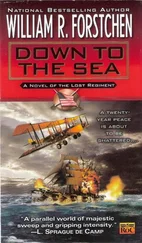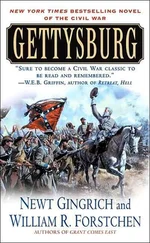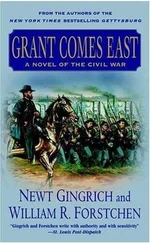And then came the Depression. Black Mountain remained frozen in time, and then came antibiotics right after the war and the sanitariums emptied out. And all those wonderful buildings, which in other towns would have given way to shopping plazas and strip malls, had remained intact, progress passing Black Mountain by.
Now there were conference centers for various churches and summer camps for kids where the sanitariums had been. His own college had been founded at such a site up in what everyone called the Cove. A small college, six hundred kids, most of them from small towns across the Carolinas and a few from Atlanta or Florida. Some of the kids were freaked out by the relative isolation, but most of them grudgingly admitted they loved it, a beautiful campus, a safe place, an old logging trail across the edge of the campus leading straight on up to Mount Mitchell, good white water nearby for kayaking, and plenty of woods to disappear into for partying for some of them, to get around the fairly strict campus rules.
The town itself finally revived, starting in the 1980s, but wonderfully, the charming turn-of-the-century look was maintained, and in the summer and fall the streets would be crammed with tourists and day-trippers coming up from Charlotte or Winston-Salem to escape the boiling heat of the lowlands, joined by hundreds of summer “cottagers” who lived in the Cove, many of the cottages darn near mansions for some of the older wealth of the South.
That had been Mary’s family, Old South and wealth. Me-ma Jennie, Mary’s mother and Jennifer’s namesake, still hung on doggedly to their home up in the Cove, refusing to consider moving, even though “Papa” Tyler was now in a nearby nursing home, in the final stages of cancer.
John continued to drive east, the traffic on Interstate 40, coming up through the Swannanoa Gap, roaring by on his left. The old-timers in the town still expressed their hatred of that “darn road.” Before it came in, Black Mountain was a sleepy southern mountain hamlet. With the road had come development, traffic, and the floods of tourists on weekends that the chamber of commerce loved and everyone else tried to tolerate.
Staying on the old highway that paralleled the interstate, John drove for less than a mile out of town, then turned right onto a dirt road that twisted up the side of a hill overlooking the town. The old mountain joke used to be “you know you’re getting directions to a mountain home when they say, ‘Turn onto the dirt road.’”
For a kid from New Jersey, John still got a bit of a kick out of the fact that he did indeed live in the South, on the side of a mountain, halfway up a dirt road, with a view worth a million bucks.
The home he and Mary had purchased was in one of the first new developments in the area. In a county where there was no zoning, the lower part of the hill had several trailers, an old shack where Connie Yarborough, a wonderful down-the-hill neighbor, still did not have electricity or town water, and next to her was an eccentric Volkswagen repair shop… the owner, Jim Bartlett, a true sixties throwback, his lot littered with dozens of rusting Beetles, vans, and even a few precious VW Buses and Karmann Ghias.
The house (Mary and John actually named Rivendell, because of their mutual love of Tolkien) offered a broad sweeping view of the valley below; the skyline of Asheville was in the distance, framed by the Great Smoky Mountains beyond, facing due west so Mary could have her sunsets.
When trying to describe the view he’d just tell friends, “Check out Last of the Mohicans; it was filmed a half hour from where we live.”
It was a fairly contemporary-looking type of home, high ceiling, the west wall, from bedroom across the living room to the dining area, all glass. The bed was still positioned to face the glass wall, as Mary wanted it so she could watch the outside world as her life drifted away.
He pulled up the drive. The two “idiots” Ginger and Zach, both golden retrievers, both beautiful-looking dogs—and both thicker than bricks when it came to brains—had been out sunning on the bedroom deck. They stood up and barked madly, as if he were an invader. Though if he were a real invader they’d have cowered in terror and stained the carpet as they fled into Jennifer’s room to hide.
The two idiots charged through the bedroom, then out through the entry way screen door… the lower half of the door a charade, as the screen was gone. Put a new one in, it’d last a few days and the idiots would charge right through it again. John had given up on that fight years ago.
As for actually closing the door… it never even crossed his mind anymore. This was Black Mountain. Strange as it seemed, folks rarely locked up, keys would be left in cars, kids did indeed play in the streets in the evening, there were parades for the Fourth of July, Christmas, and the ridiculous Pinecone Festival, complete to the crowning of a Miss Pine-cone. Papa Tyler had absolutely humiliated his daughter, Mary, in front of John early on in their courtship when he proudly pulled out a photo of her, Miss Pinecone 1977. In Black Mountain there was still an ice-cream truck that made the rounds on summer nights…. It was all one helluva difference from his boyhood just outside of Newark, New Jersey.
There was a car parked at the top of the driveway. Mary’s mother, Me-ma Jennie.
Me-ma Jennie was behind the wheel of her wonderful and highly eccentric 1959 Ford Edsel. Ford… that’s where the family money had come from, ownership of a string of car dealerships across the Carolinas dating back to Henry Ford himself. There was even a photo framed in the house up in the Cove of Mary’s great-granddad and Henry Ford at the opening of a dealership in Charlotte back before World War I.
Though it wasn’t polite to be overtly “business” in their strata and Jennie preferred the role of genteel southern lady, in her day, John knew, she was one shrewd business person, as was her husband.
John pulled up alongside the Edsel. Jennie put down the book she was reading and got out.
“Hi, Jen.”
She absolutely hated “Ma,” “Mother,” “Mom,” or, mortal sin of all mortal sins, “Me-ma” or “Grandma” from her Yankee son-in-law, who was definitely not her first choice for her only daughter. But that had softened with time, especially towards the end, especially when he had brought the girls back home to Jen.
The two got out of their cars and she held up a cheek to be kissed, her height, at little more than five foot two, overshadowed by his six-foot-four bulk, and there was a light touch of her hand on his arm and an affectionate squeeze.
“Thought you’d never get here in time. She’ll be home any minute.”
Jen had yet to slip into the higher pitch or gravelly tone of an “old lady’s” voice. He wondered if she practiced every night reciting before a mirror to keep that wonderful young woman—sounding southern lilt. It was an accent that still haunted him. The same as Mary’s when they had first met at Duke, twenty-eight years ago. At times, if Jen was in the next room and called to the girls, it would still bring tears to his eyes.
“We got time. Why didn’t you go inside to wait?”
“With those two mongrels? The way they jump, they’d ruin my nylons.”
Ginger and Zach were all over John, jumping, barking, leaping about… and studiously avoiding Jen. Though dumb, goldens knew when someone didn’t like them no matter how charming they might be.
John reached in, pulled out the bag of Beanies, and, walking over to the stone wall that bordered the path to the house, began to line them up, one at a time, setting them side by side.
“Now John, really, isn’t she getting a bit old for that?”
“Not yet, not my little girl.”
Читать дальше












